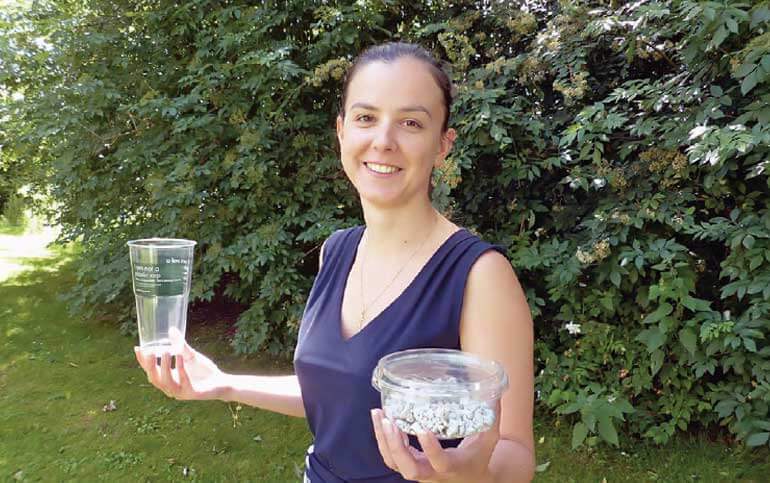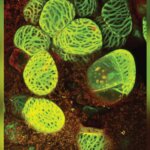A ground-breaking approach to sustainable waste management

Network Waste has been working with the University of East Anglia on a ground-breaking approach to sustainable waste management that could lead to paper waste being turned into bio-plastic. The project involves paper crumb – the waste from paper milling – which is currently spread on the land.
The company, based in Norfolk, England, is in partnership with the University’s Adapt Low Carbon Group on a project involving paper crumb – the waste from paper milling – 7,000 tonnes of which comes from a Network Waste customer every year at its mill.
Currently the waste is spread on the land but this is an energy intensive process which in the first instance requires removal of large amounts of water. Network Waste asked Adapt to investigate whether a more sustainable commercial use could be found for paper crumb.
The company is a broker offering a complete waste management service to customers. This includes removing all kinds of waste, skip and container hire, online waste management reporting and helping customers with their paperwork.
“Similar waste is being produced by other paper milling operations and, as far as we are aware, little else is being done with it in the industry.”
“We’re a business which is always trying to find practical solutions for our customers in waste management and we are always looking for something innovative,” said Network Waste’s Stuart Towler. “We recognise that working with Adapt allows us to tap into cutting edge academic research. This is an option that very few businesses in the waste management world have and we believe that the paper crumb project could be something special.
“Working closely with our customer we wanted to find out if there was some other use for the paper crumb rather than spreading it on the land. Similar waste is being produced by other paper milling operations and, as far as we are aware, little else is being done with it in the industry.”
One of the possibilities that could be explored is the conversion of paper crumb into intermediates which can be used, for example, in the bio-plastic manufacturing process. The paper waste is composed of very complex sugars and research is focused on their effective recovery and ways to turn them into a valuable commodity known as feedstock. Such sustainably obtained feedstocks are of interest to the chemical industry.
“We’re investigating if the paper waste can be used as a source of substrates to be applied in the bio-based production of chemicals, which in turn would contribute to lowering the carbon footprint of the chemical industry,” said Dr Agnieszka Krzyzaniak, Adapt Group’s business innovation manager. “One of the possibilities that we are currently exploring is to turn paper waste into feedstock to be applied in the bio-based production of molecules which are the building blocks for bio-plastics.
“Looking to use this bio-processed material in the chemical industry is a fine example of adding extra value to the paper waste. We believe that the sugars found in the paper waste can help to replace traditional processes based on fossil fuels.” The paper waste could also be used in the construction industry to be blended with concrete. “This is something which we see as a quick win because there are already companies doing this,” added Krzyzaniak.
The partnership is in its infancy but both sides are optimistic that it could make a significant impact on recycling in the paper industry. On top of this project, Network Waste is strengthening its links with the university by working with Adapt on research into evaluating vehicles movements in the waste management industry and by doing so improving the carbon disposal cycle.


